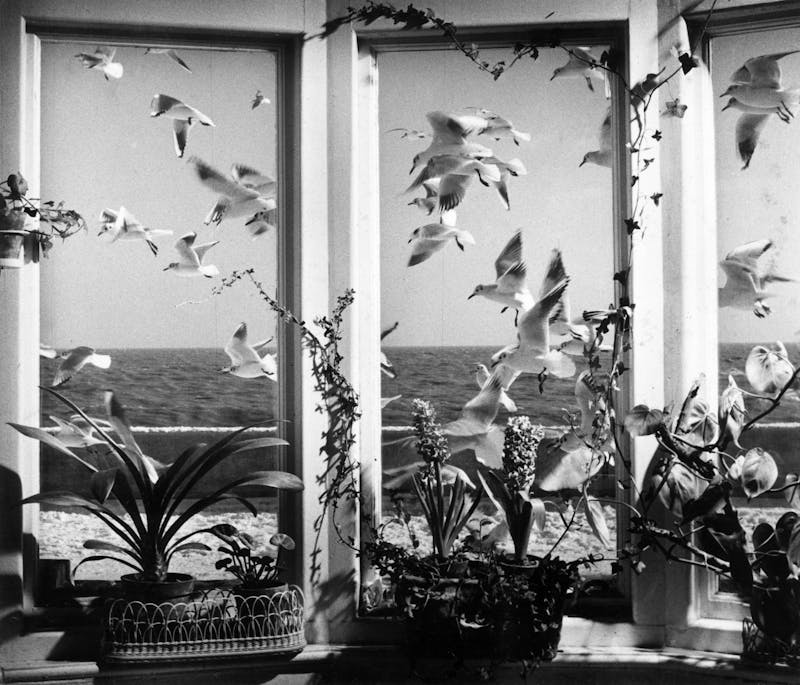This article is adapted from this year’s acceptance speech for the Nona Balakian Citation for Excellence in Reviewing, awarded by the National Book Critics Circle.

Not too long ago I saw, on the internet, a photograph of a very small baby raccoon sitting on a road. And the caption read: “when u realize u dont want 2 be responsible for anything anymore & u just want 2 nap and be small.”
I have deliberately arranged my life so that I see pictures of cute animals on the internet every day. But I’m not usually seized by them the way I was by this one. The desire to abdicate, to give up: for me, that’s primal. Like anyone else alive right now, I spend a lot of days fighting off a flight response. Every day brings fresh fear and fresh outrage. And though we have all these tiny little outlets of action in our lives, the internet posts and the petitions and the marches, no single one of them can fix this. The world is on the verge of something, and one way to look at it is that we are climbing up the arc of the moral universe. But from our present vantage, it’s very hard to see if it’s bending towards justice the way Martin Luther King said.
It’s natural to want to look away. I want to look away. For the last few years, we all have. This brave new world of ours, after all, it started long before November 8th. The struggle we presently find ourselves in is not a mistake and not a fluke. As Hannah Arendt would have told us if she were around, it came from something that has been simmering for years. It was not a Big Bang. It crept into our lives, while we were napping.
As I thought about this, a few weeks ago, I picked up The Handmaid’s Tale for the first time since I was assigned it as a Canadian high school student. You know all the jokes about that book approaching nonfiction now. You don’t need me to make another one. But reading it what I thought about was mostly this: There are so few books being published like this, now. The application of literary intelligence to this question of power, it’s out of style.
Many writers now are more interested in exploring the self. Power might be present in their books but it’s usually not the abiding preoccupation. And look: to borrow a phrase from one of Sontag’s speeches, I would never ask a writer to be a jukebox. But there is a kind of looking away going on by a lot of writers who should know better, I’m saying. And I’m troubled by it.
Yes, by design, writers live their lives in what David Foster Wallace called “our own tiny skull-sized kingdoms.” We are, so very often, alone. It doesn’t relieve us of the responsibility of getting up, and looking around. I’m just as skeptical of big-L claims about literature as I am big-C claims about criticism, but I do think there is a bottom line to writing: What a writer is supposed to do is pay attention. A good novelist pays attention to his characters. A good biographer pays attention to the documents before her. A good critic pays close attention to the thing she’s brought to evaluate.
Paying attention is the only thing that guarantees insight. It is the only real weapon we have against power, too. You can’t fight things you can’t actually see. The power a writer has is the power to make things visible, and they are the things that we don’t typically look at or think about. Telling a story about someone has enormous power. People forget a headline. They remember a story.
Here is a story I think about a lot: In my other writing life as a journalist, I met this young woman last year who had been hiding in plain sight for most of her life. Her name is Gypsy. For her whole life, her mother had insisted that she was incredibly sick. And then one day she realized: her mother was lying. With the lies, too, the mother had trapped them both in a fraud. Gypsy tried to get away, but her mother physically wouldn’t let go. So Gypsy found a young man on the internet, fell in love with him and after Gypsy asked him to, he killed her mother. And now Gypsy is in prison, trying to figure out who she is in the aftermath of all this.
At the same time as I was reporting Gypsy’s story, I happened to be given a book to review. It was a big brick of a novel about a man, clearly the author’s alter ego, who felt trapped in his bourgeois existence. And I’ll say here just as I said in print: I did not like this novel. But I know that one of the reasons I disliked it so was the novelist’s palpable incuriosity about actual suffering in the world. He just had no idea. And my dislike bloomed into pretty damning rhetoric, as it happened, so damning I suspect it won me an award as a critic because I was funny and maybe a bit savage in the way I yelled at him in print. But really, I only wanted to remind him, as I so often have to remind myself, to pay attention.